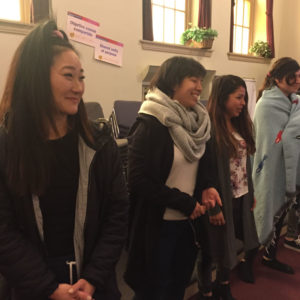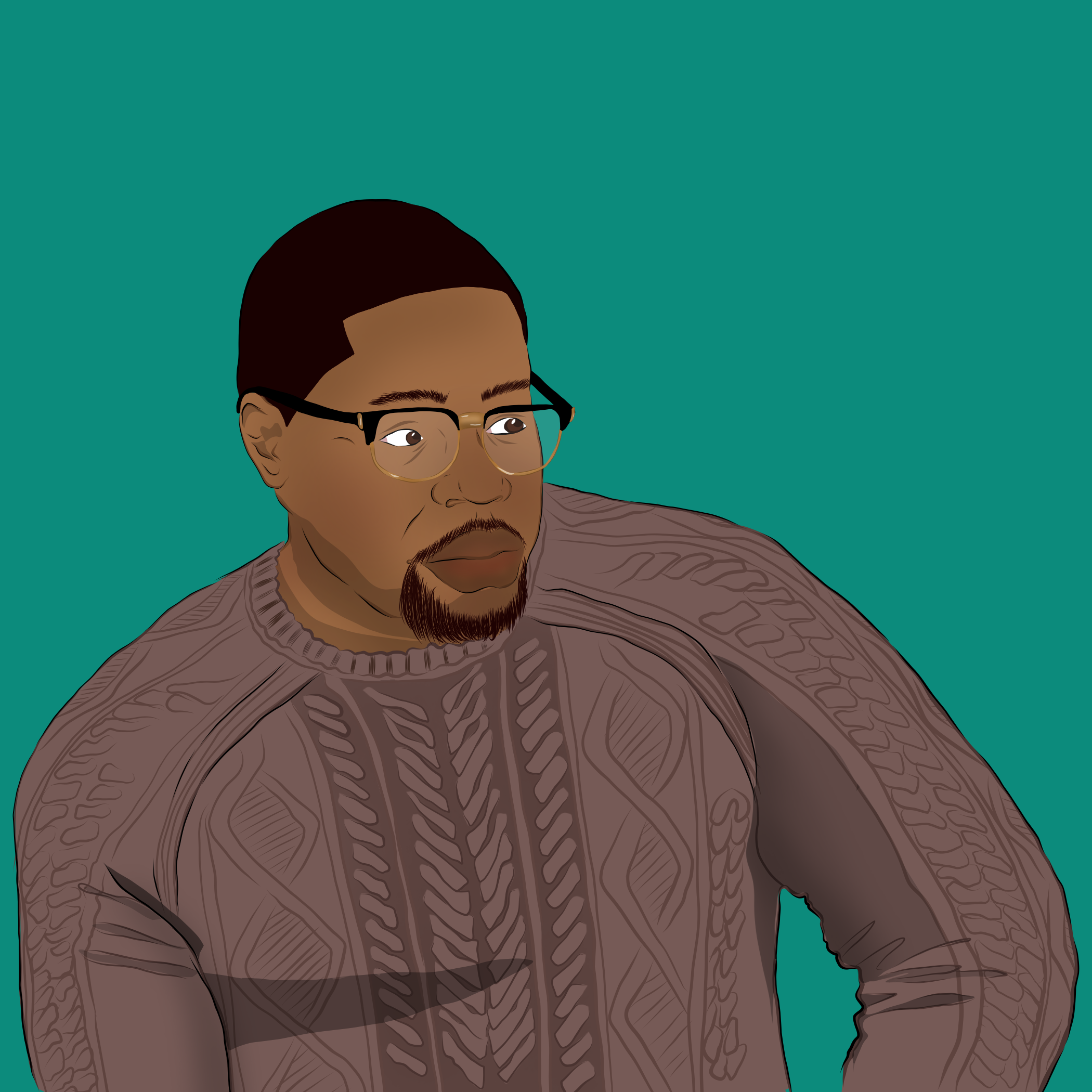About
Freedom To Thrive’s mission is to abolish the punishment-based carceral systems through transformative organizing, strategic partnerships and convening shared learning spaces. Our work centers around combating crimmigration– the intersection of criminal-legal and immigration enforcement– using a Pro Black, gender-affirming lens.

Our vision of change is grounded in collaborative partnerships and network organizing. We are intentional about supporting the capacity of groups on the ground to create change, while connecting them to national partnerships that unify and advance the work. We believe in strategic campaigning, shared learning and relationship-building across races and genders, and investing in the healing and leadership of communities most impacted by criminalization. We are organizing for a world where Black and brown communities are safe and can thrive, and have resources to build from along with relationships rooted in mutual dignity. And we believe that we will win.
At Freedom to Thrive, we practice the movement we are building. This means:
- Investing in Black leadership and Black liberation
- Supporting leadership of youth, women, and gender non-conforming people
- Generating collective healing and wellness
- Practicing transformative solutions to harm
- Caring for all of our communities, leaving no one behind
- Building in collaboration not competition
- Practicing accountability to each other and our principles
Freedom to Thrive’s Pro-Black Organizing Principles:
- Black people are decision-makers in the systems, processes and practices that lead and sustain their lives
- Acknowledging past and current racial inequities and providing people most impacted by anti Black racism the infrastructure and resources needed to thrive
- Black people are valued and recognized in naming their reality, describing how systems of oppression impact their lives and developing solutions that center their leadership needs and heal anti Black violence
- Individuals, organizations and systems are committed to abolishing white supremacy by addressing the legal, political, social, cultural, economic and historical contributions to anti Blackness
- Abolishing prisons, police forces, military forces, immigration enforcement, border patrol and any government or non-government entity terrorizing Black people and communities
- Black people experiencing joy that reverberates through generations
- Black people embodying Black love for ourselves, each other, and our communities
Staff

Melonie Griffiths, Co-Director
she/her
Melonie is an immigrant from Jamaica who has a long history of community engagement, advocacy and change creation in Massachusetts and beyond. Her work as a community organizer began in 2008 after fighting off a post foreclosure eviction that allowed her and her 3 children to remain in their home. This turned into years of grassroots organizing that played a crucial role in building bases of community leaders that organized around displacement, income/racial inequality and human injustice. She has also helped build community partnerships with labor unions, faith groups and elected officials that were grounded in accountability and created real change for residents and workers. As an avid learner that has been trained in facilitation, wellness practices and power building, Melonie has also provided facilitation and training support for national groups and networks. She is a national Black leader and known relationship builder with a passion for cultivating spaces that provide knowledge, leadership, healing and love. She has a great sense of humor, enjoys listening to reggae music and is well known for giving out hugs! You can reach her at melonie@freedomtothrive.org

Karim Golding, Organizer
he/him
Karim Golding, a Jamaican immigrant, faced a life-altering experience in the US when wrongly arrested in 2006 during the “War on Drugs” as a target of the “Hip-Hop Police.” After years of incarceration, Karim obtained a certificate in paralegal studies which helped him to get some convictions vacated, and his 30 year conviction was changed to time served. However, he was transferred to a harsh ICE detention in 2016 where he remained for 5 years. Despite contracting COVID-19 twice in 2020 and enduring solitary confinement, Karim became an advocate for detained immigrants’ rights, gaining national attention in several publications such as Rolling Stones , and The Intercept. With support from Immigrant Rights Organizations, Karim was able to help hundreds of families be reunited. He eventually secured his release in 2021. He also played a role in stopping ICE’s contract with the detention center. Today, he continues advocacy efforts, helping both migrants and US citizens with credit repair and business credit building, while passionately advocating for systemic criminal justice and immigration reform. You can reach him at karim@freedomtothrive.org.

Jen Shin, Administrative Organizer
she/her
Jen (she/her) is a first-generation Korean-American who has over a decade in recovery from alcoholism and bulimia. Using her lived experience, Jen has worked with houseless adults and youth and is passionate about destigmatizing mental health narratives, particularly within communities of color. She’s worked in the non-profit sector since 2015, and brings a human-centered and trauma-informed approach to all of the work she does. When she’s not baking, birding, or playing with her dogs, Jen’s writing her memoir that explores the origins of her addiction. You can reach her at jen@freedomtothrive.org.

Catherine Barnett, Co-Director
she/her
Catherine Barnett was formerly the New York director of Restaurant Opportunities Center United, a national worker center advocating for fair working conditions and wages for restaurant workers. She previously served as Executive Director of Project Enterprise, a nonprofit community development organization providing microloans, business education, peer support and technical assistance to entrepreneurial New Yorkers. You can reach her at catherine@freedomtothrive.org.

Seemab Hussaini, Organizer
he/him
Seemab is born and raised in Los Angeles, Ca, and is a child of 1st gen immigrants from Fiji and India, where his Fijian grandparents overcame indentured servitude, and his father -the partition- in India. As a social justice advocate and community organizer, Seemab has over 2 decades of experience in creating dialogue with local and state officials and their staff, while finding alliances with social justice organizations, coalitions, and faith leaders throughout cities, counties, and across states.
He’s helped the founding of a Muslim civil rights organization in Oregon, and served as a public official in the City of Portland’s Police Accountability Commission (PAC). He is also a member of several grassroots coalitions advancing many police accountability initiatives, including the withdrawal of the Joint Terrorism Task Force (JTTF) from the Portland Police Bureau.
Seemab has presented on panels and forums to advance dialogue and progress in police accountability and against hate-crimes, and facilitated leadership development and civic engagement workshops. He’s organized onsite events, rallies/marches, and successfully lobbied for advanced hate crime laws and immigrant/refugee rights in the state of Oregon. He continues to seek out opportunities to educate broader communities, and advocate for underserved and marginalized community members.
His advocacy work is primarily focused on how Black, Muslim, and immigrant/refugee diaspora in the Pacific North-West have been impacted by injustices carried out in places that have seen historic failures. Seemab can be reached here:seemab@freedomtothrive.org.

Aiyi'nah Ford, Development Coordinator
she/fae
Aiyi’nah (eye-yawn-ah) is the Development Coordinator at Freedom to Thrive. She is responsible for increasing Freedom To Thrive’s resources against crimmigration. Before joining our team, she served as Executive Director of The Future Foundation. Since 2012, she led the only trauma-informed youth center in her D.C. commUNITY. For this work, Aiyi’nah has been awarded the “2018 Woman of Achievement Award” by the Women’s Information Network and “2019 Leader of the Year” by the Young Education Professionals. However, she values the extensive training in trauma-informed community organizing above all. She also received training from the leadership at Emergent Strategy Ideation Institute; including adrienne marie brown. A seasoned political strategist, her organizing work has been publicized on CSPAN, Kojo Nnamdi Show, and other local news outlets. As well as printed in the Washington Post, and Washington Times. Aiyi’nah is an 8th-generation Native Washingtonian. When she is not “resourcing the revolution” she is Ms. D.C. USA Plus 2024. Her platform, “transforming childhood trauma into triumph,” is a testimony of her resilience. Aiyi’nah is also a competitive cosplayer most famous for her “Snow Black” cosplay and Blerdoir workshops facilitated at a Comic Con near her because travel is expensive. You can reach her at aiyinah@freedomtothrive.org.

Edwin Argueta, Organizer
he/him
Our Board
Ayisha Green, President
Ayisha is a community doula and youth advocate. She is the former Program Director of the YA-YA Network, a NYC leadership development organization for youth organizing to end the school-to-prison pipeline.
Justice Gaines
Justice (xe/xir) is a transfeminine poet and facilitator based in Providence, RI. Xe has worked as an organizer fighting towards Black liberation and gender justice for organizations including Jobs With Justice, Providence Youth Student Movement (PrYSM), and Facilitate Change. Xe now serves as a Political Educator & Strategist for SISTA Fire.
Ayana Aubourg, Treasurer
Ayana is the Co-Founder of Sisters Unchained, an organization dedicated to the collective leadership, healing, and creative expression of young women affected by parental incarceration in Boston.
Samah Sisay
Samah Mcgona Sisay (she/her) is a Staff Attorney at the Center for Constitutional Rights, where she specializes in international human rights and challenging inhumane immigration policies and abusive police practices.
Maggie Long, Secretary
Maggie is the Executive Director of Service Employees International Union (SEIU) Local 49 in Portland.
Freedom To Thrive is a national organization that engages in strategic partnerships and coalitions to advance the decriminalization of our communities.
Together with partners and allies we engage in long-term movement building across races and sectors, building trust and collaboration, and bringing down the walls that prevent us from addressing the root causes of harm we experience.
Our work is led and informed by people directly impacted by the immigration or prison system, who have been, or have had loved ones, deported or locked up. Their experience with crimmigration is also impacted by the intersections of race, gender, housing, education, and labor. As we work to address anti-Black racism and create gender-affirming spaces, we center those whose lived experiences place them at the forefront of the systems we are working to dismantle.
Our organization began in response to NAFTA. It was founded by Peter Cervantes-Gautschi and a binational leadership committee of visionary leaders, originally under the name Enlace, which means “link” in Spanish.
In 1998, Peter brought together dozens of worker-based organizations from Mexico and the United States for a week of strategic brainstorming about the major obstacles preventing wins for low-wage workers. It was from that convening that Enlace was born.
Enlace trained hundreds of workers in organizing strategy and strengthening internal systems for small organizations to sustain long-term campaigns, and win, against seemingly unwinnable targets: transnational corporations.
After 10 years, we shifted our focus into Crimmigration– the intersection between criminal injustice and immigration enforcement. In 2011, Enlace launched the Prison Industry Divestment Campaign to take on one of the largest barriers to worker organizing: the prison and detention system that criminalizes, incarcerates and deports working people of color.
The Prison Industry Divestment campaign grew to be one of the most prominent national campaigns uniting Black and brown communities against criminalization. Our years of organizing and capacity building resulted in the divestment of more than $5 billion dollars from the private prison industry.
In 2018 we changed our organization name to Freedom to Thrive, reflecting our vision of a world where our communities are self-determined, free, joyful and dignified.
Much of our work over time has consisted of a qualitative transformation that involved transitions, reframing, and new learnings. We evolved from being a Latinx organization, to promoting Black and brown unity, to addressing anti-Blackness, to becoming an explicitly Pro Black organization.